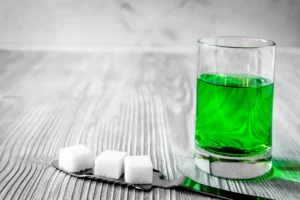What is fentanyl and why is it behind the deadly surge in US drug overdoses? A medical toxicologist explains

Fentanyl carries a high risk of dependence and addiction. It can cause harm or death to people with opioid use disorders or who may have accidental exposure to the drug. A person with a substance use disorder might obtain fentanyl by misusing prescribed medication or acquiring the drug from an illegal laboratory.
Common fentanyl side effects
- A person with a substance use disorder might obtain fentanyl by misusing prescribed medication or acquiring the drug from an illegal laboratory.
- Explore the Drug Wheel’s classification model, grouping drugs by effects on the body, aiding healthcare professionals in treatment and harm reduction strategies.
- Fentanyl is heavily trafficked into the US from other countries and sold as pills or powders, and it has largely replaced heroin in the drug supply.
Asking about your treatment or medicine is important to help you understand your options. Always check with your doctor or pharmacist before making any change to the dosage or type of medicine you take. It is important to follow the directions given to you by your doctor or pharmacist when taking this medicine. If you have any of these side effects while taking fentanyl, or if you notice anything that is making you feel unwell, speak with your pharmacist or doctor. Fentanyl reduces feelings of pain by interrupting the way nerves signal pain between the brain and the body. It works by blocking pain signals between the brain and the rest of the body.
Access to overdose-reversing medication
Deprescribing unnecessary drugs should be considered in patients at the end of life. If your pain is not well controlled on fentanyl or you have any unexpected or unwanted side effects, see your doctor. There are different options for pain management, and your doctor can suggest other approaches. If your kidney or liver function is impaired, your doctor may decide that fentanyl is not right for you. Fentanyl is not suitable for some people, for example, if you drink alcohol or take other medicines that can cause drowsiness. — See this list of medicines that contain fentanyl to find out more about a specific medication.
Related/similar drugs
- As with other opioid drugs, fentanyl binds to the receptors in the brain that affect pain and emotion.
- Manufacturers may also add bulking agents, like flour or baking soda, to fentanyl to increase supply without adding costs.
- This means you’ll experience withdrawal symptoms once you stop taking it.
- Side effects include drowsiness, weakness, and dry mouth.
- But these tips can reduce some of that risk and lower your chances of overdose, infection, or other problem.
Fentanyl can continue to be effective after removing the patch, as the skin has already absorbed the drug. However, the amount of time it remains effective depends on the individual. For continuous delivery, a transdermal patch can slowly deliver fentanyl through the skin and how long does iv fentanyl stay in your system into the bloodstream for up to 72 hours. As with other opioid drugs, fentanyl binds to the receptors in the brain that affect pain and emotion.


The citrate salt, fentanyl citrate, is administered by injection, either intramuscularly or intravenously, sometimes in combination with a potent tranquilizer. The rise of fentanyl in Australia’s illicit drug market, its potency compared to morphine, and harm reduction strategies to combat overdose risks. Most people die from respiratory depression and failure from an overdose of an opioid like fentanyl. This means breathing stops altogether, and they cannot get the oxygen their brain and body need to survive. Some people may also vomit and choke to death because they are unconscious. This typically occurs rapidly, in a matter of a few minutes.
For example, carfentanil, a fentanyl analog formed by substituting one chemical group for another, is 100 times more potent than its parent structure. Another analog, acetylfentanyl, is approximately three times less potent than fentanyl, but has still led to clusters of overdoses in several states. Call your doctor if you experience more than four episodes of breakthrough pain per day or if you have new pain or an increased sensitivity to pain during your treatment with fentanyl. Your doctor may need to adjust the dose of your other pain medication(s) to better control your pain. Because fentanyl is so potent and commonly found in the drug supply, it is easy for people to accidentally overdose on fentanyl. A fentanyl overdose can occur after the drug is injected, swallowed, snorted, or smoked.

Fentanyl affects people differently, depending on an individual’s size https://ecosoberhouse.com/ and overall health condition.

Misuse of fentanyl includes taking it orally, smoking it, snorting it, or injecting it. Older people are more likely than younger individuals to experience adverse effects, especially the respiratory depressant effects of fentanyl. Healthcare professionals will typically monitor people in this age group. In this article, we will discuss the medical uses of fentanyl and its side effects. We will also cover misuse of fentanyl, addiction, and the risk of overdose. One of the most important skills available to the healthcare worker in this situation is the ability to perform an accurate pain assessment to determine whether the pain is cardiac in nature.
